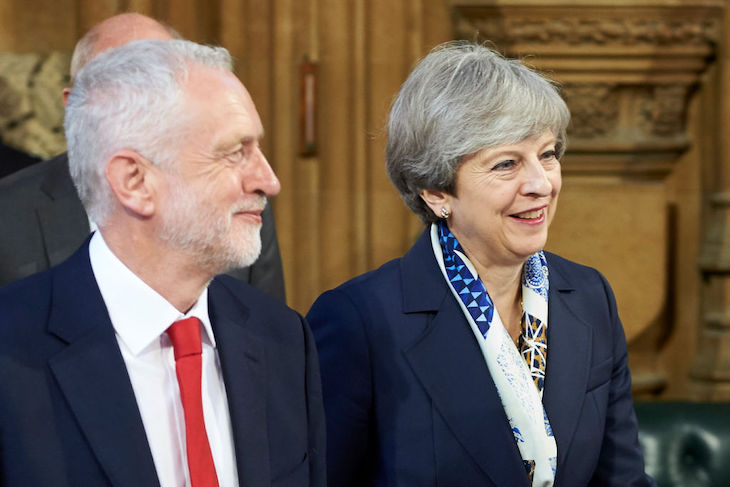The local election results showed that both main parties are paying a price for the Brexit impasse. This, as I say in The Sun this morning, means that the cross-party talks have a better chance of succeeding than they did.
Those in the talks are more optimistic than they have been about getting some kind of agreement, if not a full-blown deal. But they know that things could change very quickly.
I understand that the compromise being drawn up goes as follows. The UK would initially enter into a ‘comprehensive customs arrangement’ with the European Union. This would be very similar to a customs union.
But the two parties would then commit, and hope to persuade the EU to do the same, to there being two choices for the future: either an independent trade policy under a scheme similar to the facilitated customs arrangement that May proposed at Chequers or a customs union with a UK say over future trade deals, which is Labour’s policy.
The irony of this is that the EU hasn’t said that it will accept either of these options. Getting Brussels to include them in the political declaration will not be easy.
The Prime Minister’s chief of staff Gavin Barwell has told Tory MPs that about half the stuff that Labour has asked for in these talks—on subjects such as EU agencies and crime—are things that the government has already tried to get from the EU.
There would also be a separate bill that would put the UK on course to remain in ‘dynamic alignment’ with the EU on workers’ rights. I am told that the bill will be ‘more dramatic’ than Tory MPs would like.
The big risk that May is running in trying to cut this deal is how her own party will react to it. One senior Cabinet Minister has told colleagues that he fears cooperating with Corbyn legitimises the Labour leader and that he’d rather resign than back a deal. Those close to this Secretary of State argue that in these circumstances, it would be better to the Tories to argue for a new deal with a new EU Commission—which will take office in November.
But others in Cabinet think that without a general election—which the Tories are in no position to fight—there’s no other way to deliver Brexit. One calculates that while many Tory MPs would not vote for the deal, they wouldn’t cause a permanent split in the Tory party over it.
On the Labour side, there are, perhaps, even more substantial obstacles. A huge number of Labour MPs, including pretty much their whole whips office, want a second referendum.
If Britain’s MEPs are not to take their seats in the new EU parliament, the withdrawal agreement bill will have to be introduced to the Commons in the next two weeks. This is, I understand, Downing Street’s deadline for these cross-party talks to reach a conclusion.







Comments